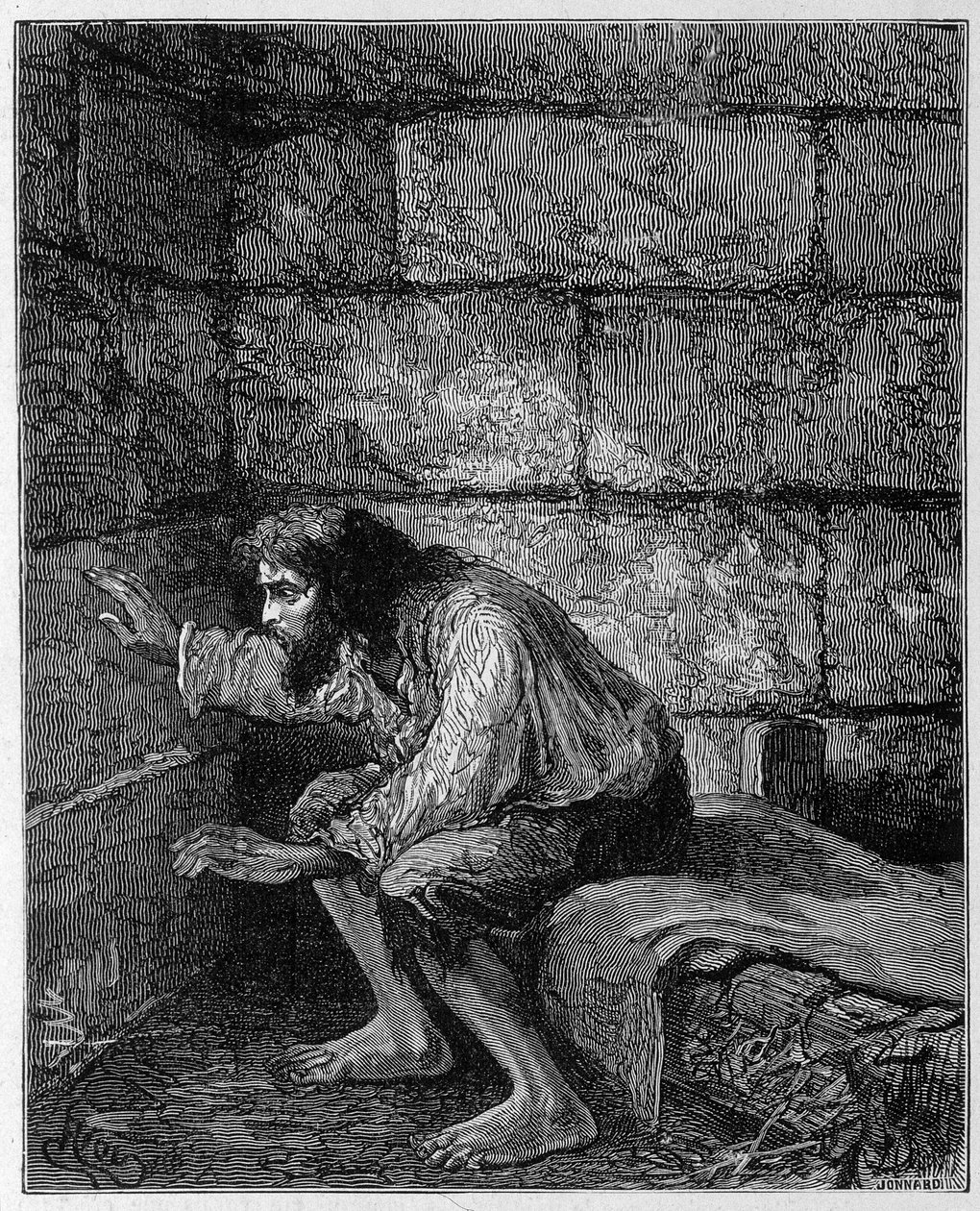Exploring Themes Of Revenge And Justice In The Count Of Monte Cristo

Table of Contents
Edmond Dantès's Pursuit of Revenge: A Descent into Darkness
Edmond Dantès's quest for vengeance forms the very heart of The Count of Monte Cristo. His pursuit is fueled by the profound injustice he suffers, transforming him from a hopeful young man into a calculating mastermind.
The Unjust Imprisonment:
Edmond's wrongful imprisonment is the catalyst for his entire transformation. Betrayed by those he considered friends—Fernand Mondego, Danglars, and Villefort—he is falsely accused of treason and incarcerated in the infamous Château d'If.
- Key Players: Fernand Mondego (jealous rival in love), Danglars (ambitious shipmate), and Villefort (ambitious prosecutor).
- Injustices Suffered: False accusation, wrongful imprisonment, separation from his beloved Mercédès, and the loss of his freedom and future.
This brutal injustice shapes his metamorphosis into the Count of Monte Cristo, a wealthy and influential figure who meticulously plans his revenge.
Meticulous Planning and Execution of Revenge:
The Count's revenge is not impulsive; it's a carefully orchestrated symphony of calculated schemes targeting each of his betrayers.
- Examples of Schemes: Ruining Danglars financially, exposing Villefort's dark secrets, and orchestrating Fernand's downfall.
- Moral Ambiguity and Escalating Consequences: His actions, while satisfying to the reader on a visceral level, raise complex ethical questions. The consequences of his revenge extend far beyond his immediate targets, affecting innocent lives.
The meticulous nature of his plans and the far-reaching effects underscore the dangerous allure and potentially devastating consequences of unchecked vengeance.
The Psychological Impact of Revenge:
The pursuit of revenge takes a heavy toll on Edmond. While he achieves a degree of satisfaction, it comes at a significant cost.
- Loss of Innocence: His ordeal strips him of his naiveté and transforms him into a man capable of ruthlessness.
- Potential for Self-Destruction: The obsessive focus on revenge threatens to consume him entirely, potentially leading to his own self-destruction.
- Blurring Lines Between Justice and Vengeance: The line between justice and revenge becomes increasingly blurred, highlighting the moral ambiguities central to the narrative.
The Concept of Justice in The Count of Monte Cristo: Divine or Human?
The Count of Monte Cristo raises profound questions about the nature of justice—is it a human construct, or something divinely ordained? The novel presents a compelling critique of both systems.
The Flawed Justice System:
Dumas vividly depicts the flaws within the French legal system of his time. Justice, in the novel, is often arbitrary, susceptible to corruption, and easily manipulated by those in power.
- Examples of Corruption and Bias: Villefort's willingness to overlook evidence and convict an innocent man exemplifies the system's inherent failings. The ease with which Edmond was initially imprisoned highlights the lack of due process.
The novel suggests that human justice can be fallible and easily compromised.
Edmond's Brand of Justice:
Edmond's actions raise crucial questions: Does his revenge constitute justice, or is it simply a brutal act of retribution? Are his methods justified, considering the injustices he suffered?
- Arguments for Justification: Many readers sympathize with Edmond, seeing his actions as a necessary correction of the profound injustices he faced.
- Arguments Against Justification: Others argue that his methods are excessive and cause collateral damage, blurring the line between justice and revenge. The disproportionality of his actions also raises questions about true justice.
The novel doesn't offer easy answers, forcing readers to confront the complexities of these questions.
The Role of Chance and Fate:
Chance and fate play significant roles in shaping the outcomes of Edmond’s quest. Coincidence and unforeseen events frequently influence the narrative's course.
- Key Coincidences and Plot Twists: The Abbé Faria's mentorship, the discovery of Monte Cristo's treasure, and various unexpected encounters all contribute to the intricate web of events.
These elements highlight the unpredictable nature of life and how even the most meticulously planned revenge can be subject to the vagaries of fate.
The Blurred Lines Between Revenge and Justice in the Narrative
The moral ambiguity permeates the entire novel, blurring the lines between victim and perpetrator, justice and revenge.
The Moral Ambiguity of the Characters:
The characters are not simply good or evil; they possess complex motivations and act within morally gray areas.
- Fernand Mondego's Actions: Driven by ambition and jealousy, Fernand's betrayal is a complex mix of self-preservation and malice.
- Danglars's Greed and Betrayal: His actions are rooted in ambition and greed, highlighting the corrupting influence of avarice.
- Villefort's Corruption and Fear: Villefort’s actions are driven by a desperate need to protect his career and reputation.
Analyzing the motivations of each character reveals the layered complexities of moral choice and the human capacity for both good and evil.
The Question of Forgiveness:
The novel explores the potential for forgiveness and redemption, but it's not a central theme. While some characters show remorse, true forgiveness is rarely offered or received.
- Instances of Remorse and Redemption: Haydée, a victim of slavery, embodies a capacity for forgiveness, contrasting with Edmond's relentless pursuit of revenge.
- Absence of Forgiveness: Edmond’s actions leave little room for forgiveness from his victims, reinforcing the cycle of violence.
The absence of forgiveness highlights the lasting impact of injustice and the difficulty of moving beyond revenge.
Thematic Significance:
The themes of revenge and justice in The Count of Monte Cristo remain profoundly relevant today.
- Connection to Current Events: The novel's exploration of corruption, injustice, and the destructive nature of revenge resonates strongly with contemporary issues, from political scandals to social inequalities.
Dumas’s exploration of these timeless themes makes The Count of Monte Cristo a relevant and thought-provoking work for generations to come.
Reflecting on Revenge and Justice in The Count of Monte Cristo
In conclusion, The Count of Monte Cristo presents a nuanced and compelling exploration of the intertwined themes of revenge and justice. Edmond Dantès's journey highlights the seductive power of revenge and its devastating consequences. The novel critiques flawed justice systems and leaves readers questioning the true meaning of justice. The moral ambiguities surrounding Edmond's actions and the complexities of defining "justice" are enduring aspects of the novel's lasting impact. Delve deeper into the complexities of revenge and justice by rereading The Count of Monte Cristo and consider the lasting impact of Edmond Dantès's journey. Continue exploring the timeless themes of revenge and justice in literature by researching similar works that grapple with these complex moral questions.

Featured Posts
-
 Re Examining Dumass The Count Of Monte Cristo A Critical Analysis
May 05, 2025
Re Examining Dumass The Count Of Monte Cristo A Critical Analysis
May 05, 2025 -
 Ao Vivo Corinthians X Internacional Horario E Escalacoes Confirmadas
May 05, 2025
Ao Vivo Corinthians X Internacional Horario E Escalacoes Confirmadas
May 05, 2025 -
 Cocaines Resurgence The Role Of Powerful New Drugs And Narco Subs
May 05, 2025
Cocaines Resurgence The Role Of Powerful New Drugs And Narco Subs
May 05, 2025 -
 Britains Got Talent Childs On Air Panic
May 05, 2025
Britains Got Talent Childs On Air Panic
May 05, 2025 -
 Formula 1s Ubiquity How Stefano Domenicalis Leadership Drives The Sports Popularity
May 05, 2025
Formula 1s Ubiquity How Stefano Domenicalis Leadership Drives The Sports Popularity
May 05, 2025
Latest Posts
-
 Turki Al Sheikhs Missed Opportunity 40 50 Million Viewers Lost In Canelo Paul Fight
May 05, 2025
Turki Al Sheikhs Missed Opportunity 40 50 Million Viewers Lost In Canelo Paul Fight
May 05, 2025 -
 Mexico Ufc O Canelo La Batalla Por La Audiencia
May 05, 2025
Mexico Ufc O Canelo La Batalla Por La Audiencia
May 05, 2025 -
 Ufc O Canelo La Gran Pelea En Mexico
May 05, 2025
Ufc O Canelo La Gran Pelea En Mexico
May 05, 2025 -
 Canelo Y Ufc Choque De Titanes En Mexico
May 05, 2025
Canelo Y Ufc Choque De Titanes En Mexico
May 05, 2025 -
 Ufc Y Canelo Una Rivalidad En Mexico
May 05, 2025
Ufc Y Canelo Una Rivalidad En Mexico
May 05, 2025
